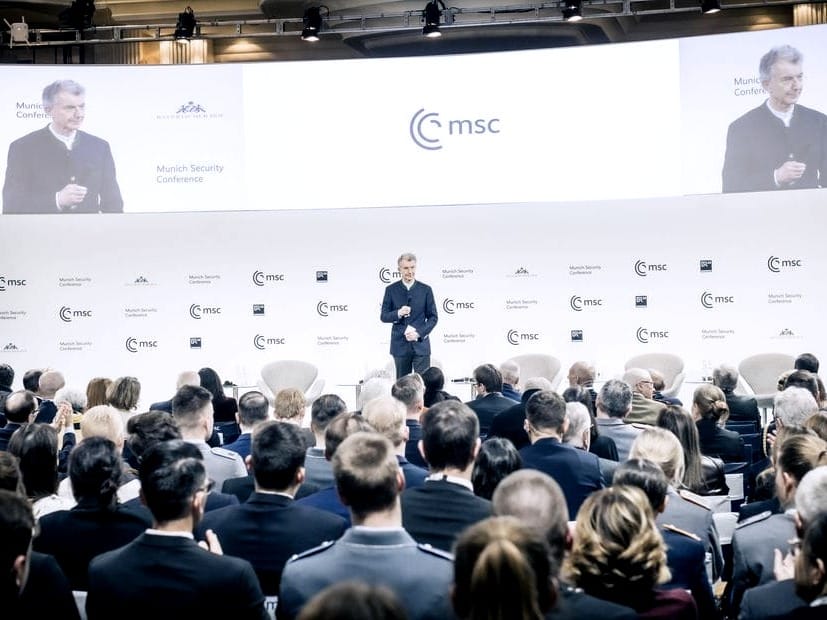Ukrainian President Volodymyr Zelenskyy and other world leaders gathered in Germany for the start of the Munich Security Conference, where the wars in his nation and in Gaza top a full agenda that includes democratic resilience, climate change, nuclear security, migration, and AI's future.
The three-day summit, focused on defense and diplomacy, opened on Friday, drawing around 50 heads of state or government, including German Chancellor Olaf Scholz and U.S. Vice President Kamala Harris, along with more than 100 other high-level government officials. Diplomats, military officers, and leaders of international organizations also were attending.









